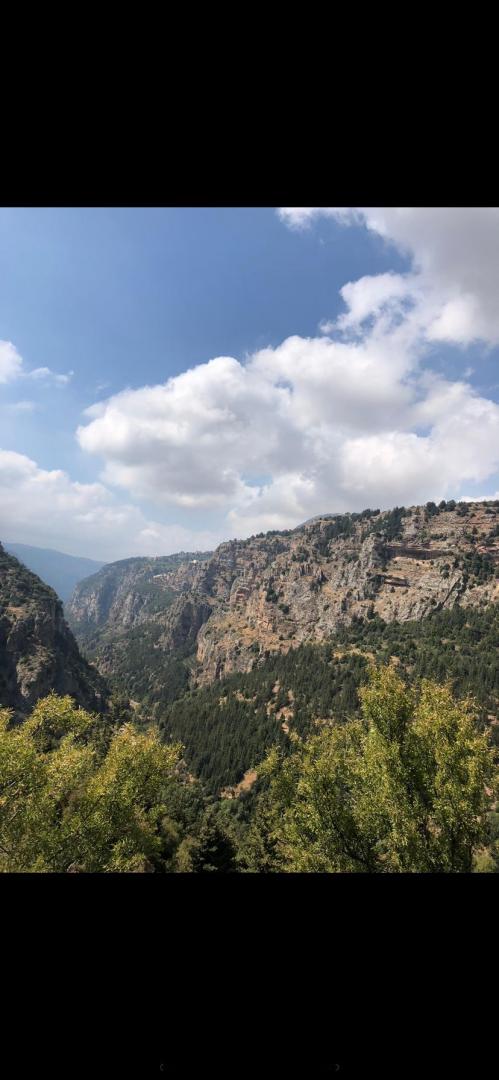You’ve seen Lebanon’s political and economic crisis on the news and read about it in the papers, but in this weekly travel diary, Ben Pullan tells us what it’s really like. The 24-year-old Barnard Castle resident and Arabic student has travelled to Lebanon where he is studying at a language institute.
LEBANON’S crisis is rearing its ugly head.
On Saturday, October 16, the electricity grid failed, plunging the nation into darkness for 24 hours.
Last Thursday, sectarian violence – which has been compared to the sectarian violence redolent of the civil war – broke out in Beirut between Shia and Christian militias. Escape from the crisis is possible, however, as the mountains serve as a refuge for the beleaguered.
The mountains are a crucial part of the national consciousness. They are home to Lebanon’s national tree, the cedar. Though few cedars remain – they are only found in a handful of forests – they are breath taking.
In fact, Teesdale is home to a small Lebanese diaspora; the cedars can be found in the grounds of Lartington hall. To appreciate their true beauty however, you must see a cedar forest.
[media=2]
The most famous forest, the Cedars of God, lies within the Qadisha valley, 16 miles east of Tripoli. The oldest cedars have stood for nearly a thousand years. Additionally, the Qadisha is home to streams reminiscent of the estuaries that feed into the river Tees.
Lebanon’s vineyards are another important national heritage. Lebanon is one of the oldest wine producing nations, and despite the crisis, new wineries are springing up.
One of them is “Sept” , founded before Lebanon’s descent into mayhem on a small plot of land that clings onto the mountainside. Despite the crisis the small winery appears to be flourishing. Their wine is exported to Europe and can even be found in the USA.
The winery enjoys a beautiful vista overlooking the foothills that buttress the Lebanese mountain range. The fresh air and stunning views of the vineyards provide a brief respite from the reality of Lebanon.
Returning to Tripoli the crisis becomes apparent once more.
Getting to and from anywhere in Lebanon is a challenge. Petrol subsidies provided by the government were cancelled at the end of September. As a result, petrol queues are much shorter as fewer people can afford to fill their cars.
Prices for taxis, the only reliable way to get around Lebanon, short of owning a car, are in flux. A month ago, a taxi from Tripoli to the port district, about 1 ½ miles, cost seven thousand Lira (at the time about 80 cents)
Now, the same taxi will cost about 15,000 Lira (roughly 70 cents), making it more expensive for Lebanese people to navigate their own city.
[media=3]
Baha, a local taxi driver, explained this fluctuation is tied to the rising price of fuel, which in turn is tied to the strength of the Lebanese Lira.
The black-market exchange rate, the rate all Lebanese work with, trades at 20,500 Lira to the US dollar.
While prices have gone up wages have decreased. Most people I have spoken to consider 1-2 million Lira a month ($48-$97) to be a decent wage, the majority goes on running a generator for a month, which costs upwards if 1,000,000 Lira.
A family wage, where parents and children contribute to the same income, is absorbed by this cost. The little money that is left over is spent on water, cooking gas and maybe some medicine. Some families are dipping into savings to buy food.
Some people I have spoken with have said that whilst they consider their salaries to be good, even very good, it isn’t enough to cover all expenses.
Many young professionals live at home with their parents. A young lawyer in a topflight firm in Beirut commands a good salary by contemporary Lebanese standards. They can buy food, clothes and occasionally go out. Yet, due to the collapsing economy they cannot afford to leave home.
A brief escape from the crisis is a luxury that many Lebanese cannot afford.






